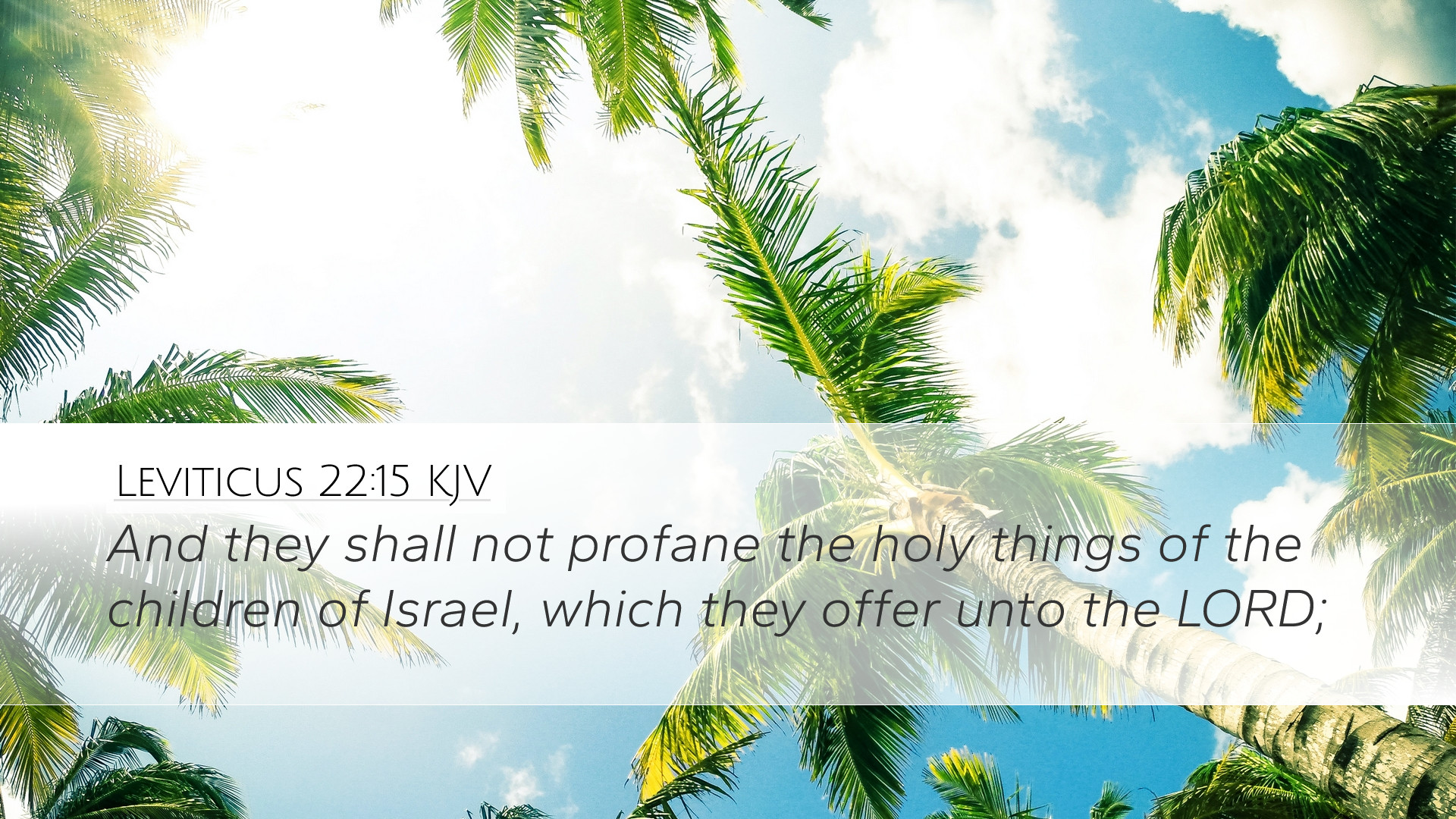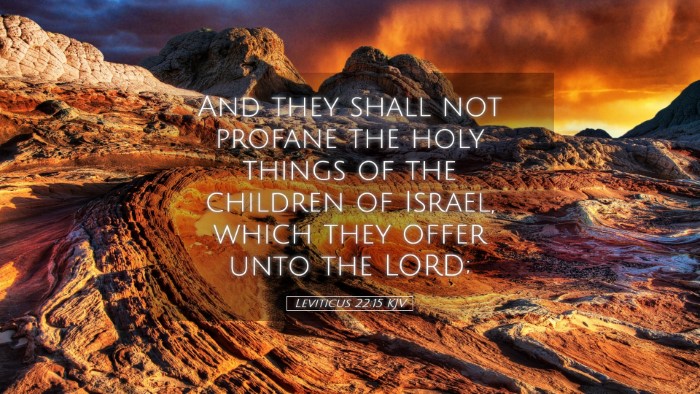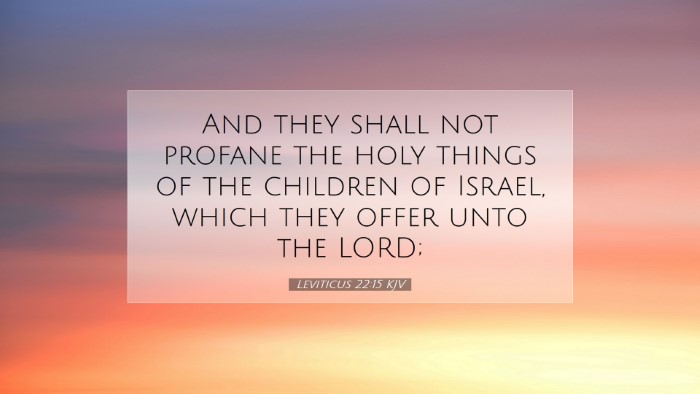Commentary on Leviticus 22:15
Leviticus 22:15 states: "And they shall not profane the holy things of the children of Israel, which they offer unto the Lord." This verse underscores the importance of maintaining the sanctity of offerings made by the people of Israel. Through insights drawn from the commentaries of Matthew Henry, Albert Barnes, and Adam Clarke, we can explore the implications of this passage for the life of believers.
Understanding the Context
To truly grasp the depth of Leviticus 22:15, one must first consider its context within the broader narrative of Leviticus. The book is primarily concerned with the laws governing worship and the conduct of the priests. The significance of holiness and purity is emphasized throughout, reflecting God’s desire for His people to come before Him with reverence.
The Role of the Priests
Matthew Henry notes that the priests were responsible for managing the holy things, which included offerings and sacrifices. Henry asserts that this responsibility implies great accountability: the priests must ensure that the offerings made by the people are treated with the utmost respect.
As Barnes elaborates, the holy things signify the divine gifts and covenantal relationship between God and Israel. Profaning these offerings undermines not only the sanctity of the objects but also the very relationship they symbolize.
Reflection on Holiness
Adam Clarke emphasizes the deep doctrinal implications of this scripture, where he notes that holiness is not just about external compliance with the law but also involves internal reverence and intention. Clarke challenges modern readers to reflect on whether they approach their worship and offerings with the sacredness that this law demands.
Implications for Worship
This verse compels us to examine our attitudes and actions in worship. The call to honor what is holy is as relevant today as it was in ancient Israel. Henry suggests that this translates into how congregations respect their leaders, their acts of worship, and the sacred elements involved.
- Preparation for Worship: Priests and laypeople alike must prepare their hearts and minds to offer true worship.
- Respect for Sacred Spaces: The places where worship occurs must also be treated with honor.
- Integrity in Offerings: The motivations behind our offerings should align with the integrity that God seeks.
Warnings Against Profaning the Holy
The warning against profaning the holy things serves as a reminder of God’s judgment on irreverence. Matthew Henry identifies that the notion of being 'profane' goes beyond mere ritual. It is a warning against the casualness that can seep into religious practice and diminish its value in the eyes of God.
Moreover, Barnes contributes to this discourse by indicating that abuse of sacred things leads to disfavor with God. He argues that God is a jealous God who will not tolerate disrespect towards His holy ordinances.
The New Testament Correlation
While Leviticus 22:15 addresses the conduct of priests, its principles are relevant for Christians today. Clarke points out that in the New Testament, believers are referred to as a “royal priesthood” (1 Peter 2:9), which means that all Christians share in this priestly responsibility.
This reflects a call for believers to uphold the sanctity of their worship and the elements involved in it, recognizing that dishonoring what is holy can lead to spiritual consequences.
Conclusion
In summary, Leviticus 22:15 stands as a poignant reminder of the sacredness of God’s ordinances and the role of the priesthood. Through the insights of Matthew Henry, Albert Barnes, and Adam Clarke, we are urged to approach our worship with reverence, ensuring that we do not profane the holy things of God. This passage invites deep introspection and a commitment to honoring God in our spiritual practices.


